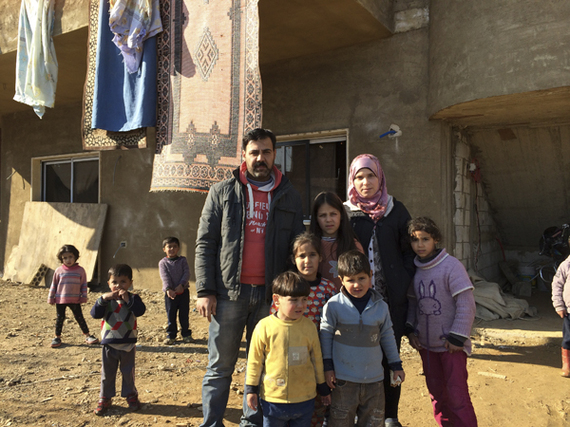As an experienced humanitarian worker, I'm used to working with refugees and people displaced by conflict around the world. Their living conditions are always difficult, and daily life is always a struggle. Donors like the European Union fund projects that bring relief, providing assistance with food, shelter, medical care, water and sanitation.
But just how harsh the conditions of refugees can be was brought home to me during a visit to Lebanon this month.
Lebanon is hosting the greatest per capita concentration of refugees in the world. More than 1.1 million refugees are sheltered in the country -- almost a quarter of the entire population of Lebanon.
The figure has enormous consequences for the government hosting them. It is straining the ability of the authorities to properly care for the new arrivals and provide basic services.
And with the Syria crisis soon about to enter its fifth year, the influx has resulted in increased tensions between the host communities and the refugees. Daily life for refugees is becoming increasingly hostile.
Traveling to the Bekaa Valley, just a week after fierce snowstorms hit this region, I was shocked at the conditions many of the refugees live in. The valley was still blanketed with thick snow, although many of the access roads had been cleared.
Some families were in self-constructed shelters, using plastic sheets and pieces of wood. Many of their shelters had let in snow and water -- bringing misery to their inhabitants trying to stay warm. Others were in unfinished buildings, many without proper windows and doors, heating or electricity.
Aid agencies politely call the living conditions of these people "substandard." In truth, they are squalid and often unfit for human habitation.
The temperature at high-altitude areas in Lebanon regularly drops below zero. It's a challenge for Syrian families to stay warm. Many came with only the clothes on their backs; others have spent all their savings on rent and food.
Abd Al Fatah Ibromak, a father of six, was evicted from his home in Baalbek after the family fell behind with the rent. They spent several nights on the street until someone helped them get in touch with the Norwegian Refugee Council (NRC), which is a partner of the European Commission's Humanitarian Aid and Civil Protection department (ECHO).
Abd now lives -- rent-free for a year -- with several other families in an unfinished building. NRC has negotiated a rent-free period with the landlord, in return for carrying out paid work to improve the shelter and make it more habitable.
"The hardest challenge is getting used to the idea that you can spend your entire life working and get nowhere," he said. "We have no money, no diesel to keep the children warm. We cannot even afford food.
"The recent snowstorm was very bad because we didn't have diesel oil to keep the stove going, and the winds were very strong and the weather harsh."
Abd, who once ran a restaurant with his brothers in Damascus, now gets some work at a local bakery, but the work isn't regular, and it is poorly paid. He worries about the future, about his four children who cannot attend school, about when life will start to get any easier.
Like many other refugees, he wonders when it will be safe for his family to return to Syria. But with no end in sight, there's a greater need than ever for humanitarian donors and partners on the ground to work out ways of continuing to provide refugees protection, access and help.
There are huge challenges, but unless we tackle them, life for refugees like Abd and his family will remain bleak.

